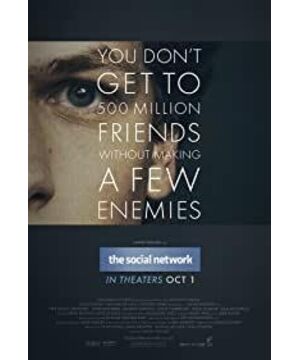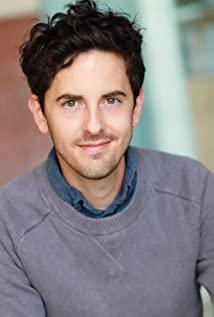I watched the movie that day in a cinema not far from Google’s headquarters. In the film, when Zuckerberg decided to promote the facebook to Stanford, the audience cheered. I suddenly felt like I was living in the center of the world. And those geeks who can change the world because of a certain idea—change the way we know the world—are sitting in a nearby house typing on the keyboard. They are the real pioneers of this era, because everything that happens on the Internet can affect our daily lives more quickly and deeply than any other technological innovation.
But why do writers, filmmakers, and the media only grab Zuckerberg, not the founder and CEO of Yahoo, Google, Youtube, Twitter...? Maybe it's because the history of their fortune is too quiet, unlike Facebook, which has been struggling with lawsuits and discussions about online privacy in the past few years. The story of "Social Network" also revolves around two lawsuits that directly point to Facebook's original sin, and flashbacks between the hearing and the messy past. Did Zukerberg steal the ideas of the Winklevoss brothers? Did he deliberately betray his best friend and partner? Just like the well-known Aaron Sorkin, the screenwriter of "Social Networks," Facebook’s early stories encompassed the constant themes of art: friendship, loyalty, jealousy, and betrayal. Under the distinct sense of the times, it actually has the shadow of 19th-century realist novels.
Zuckerberg is an unpredictable figure. His motive is unknown, and he seems to be hiding behind the airtight language forever. Sorkin contributed very sharp lines to this movie. The hand-to-hand combat of words and sentences is often more enjoyable than the action scenes of punching and kicking. David Fincher seems to have returned to the early days of his MV shooting, editing quickly and neatly, sweeping away the pretentiousness of "The Curious Case of Benjamin Button". Under this rhythm, every character seems to be involved in an unstoppable vortex, and everyone's morals and abilities are equally subject to scrutiny. If Zuckerberg is a bastard, then everyone who goes to court with him will have to pay for their mediocrity.
The relationship between a "jerk" and the people around him has always been the center of this movie. In fact, what makes Zuckerbeg's story fascinating is not just the disputes, but the irony of those disputes formed under the shadow of the huge social network woven by Facebook. The reason why Facebook is more topical than Google is because Google aims to change the way we touch things, but Facebook directly inserts our relationships. Regardless of the level of technological development, how to coexist between people is the most basic problem that a society must solve. The emergence of Facebook seems to disrupt a lot of things. When a person can have hundreds of thousands of "friends" at every turn, what does a friend mean? When interpersonal communication becomes more and more unilateral display and viewing, are we no longer lonely or more lonely?
Zuckerberg has five million "friends", but his best friend is suing him-this black humor can be seen everywhere in this movie. For such a slightly dark story, it is even a little too funny.
Helpless, this is the epic of our time. Satire is becoming the only credible spirit of the times (compared to innocent and tragic). On the one hand, "Social Network" seems to be reflecting, but to a certain extent, it is exactly the same as the object it is trying to present, and will eventually become a part of a huge image manufacturing machine, recording and displaying human history at ultra-high speed.
Today, Zuckerberg will sit in the dark theater and watch what he said a few years ago is read by another himself. We might also face that day when we are taking the picture even before the event has happened.
View more about The Social Network reviews











